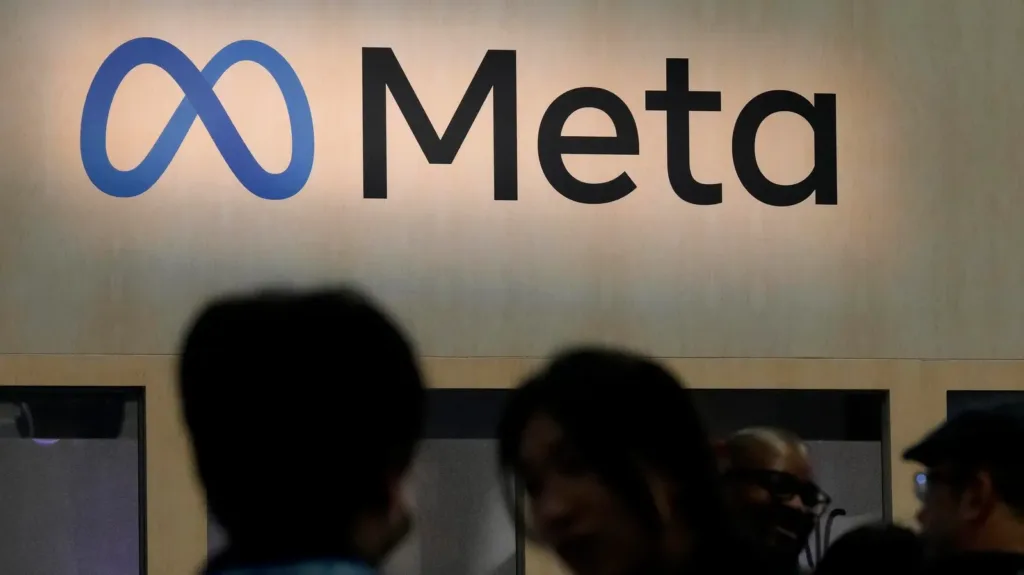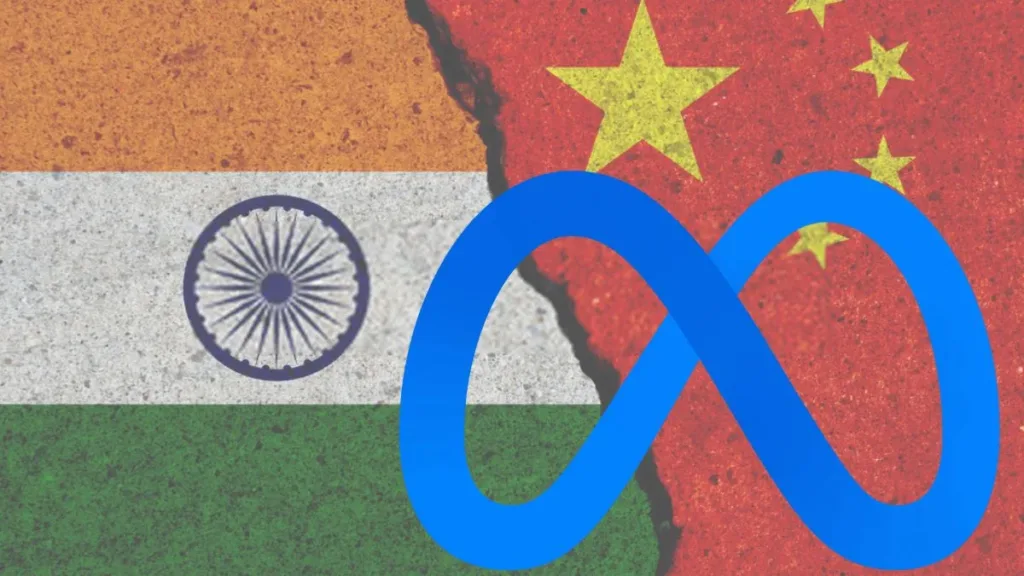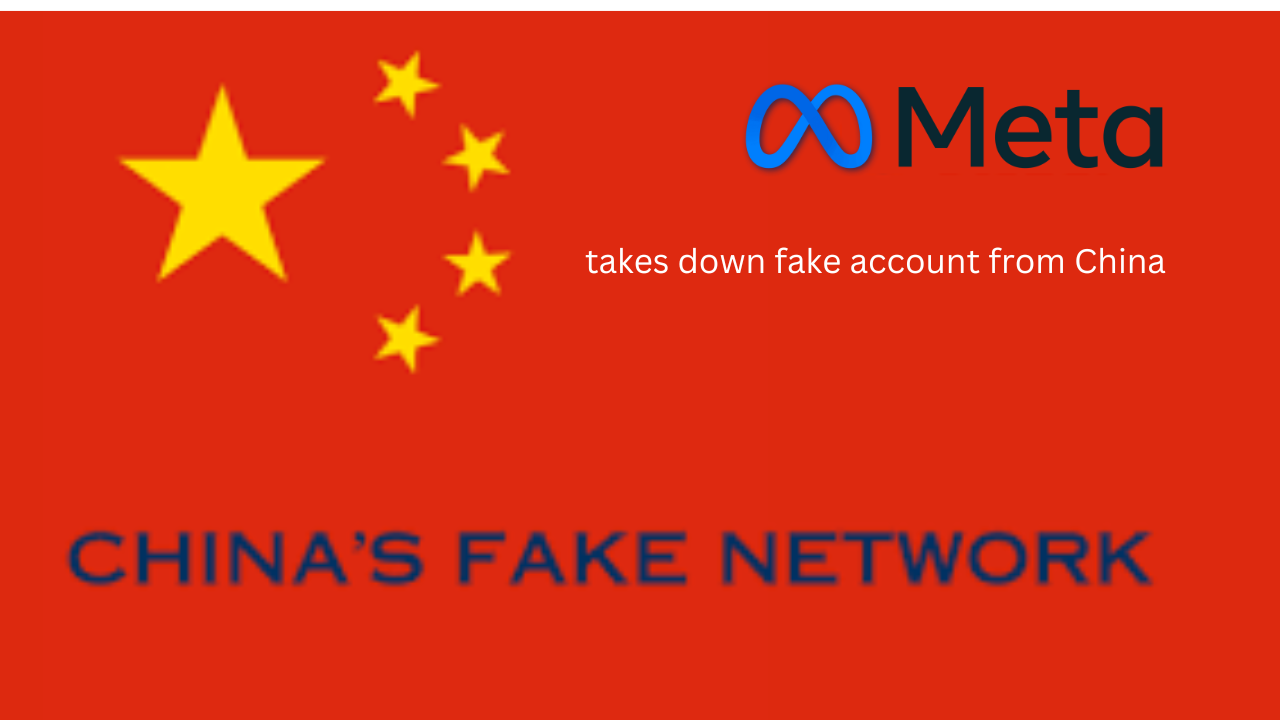Meta Uncovers Chinese Fake Accounts Fueling Khalistani Extremism in India.
Introduction
In a concerning development, Meta has uncovered a network of fake social media accounts originating from China that are actively targeting the global Sikh community, including in India, in an apparent attempt to stoke unrest and division ahead of the 2024 Lok Sabha elections.
Key Findings of Fake Accounts by Meta

The tech giant revealed that it had removed 37 Facebook accounts, 13 pages, 5 groups and 9 Instagram accounts that were part of this coordinated inauthentic behaviour network. The accounts, which used fake names and profile pictures, were created to appear as genuine users from Australia, Canada, India, New Zealand, Pakistan, the UK, and Nigeria.
Modus Operandi
The network’s activities included promoting a fictitious activist movement called “Operation K” that advocated for pro-Sikh protests, particularly in New Zealand and Australia. They also attempted to influence news and current events by potentially using AI-generated manipulated images.
How did Meta find it?

Worryingly, Meta found that the accounts were trying to fuel Khalistani extremism in India by targeting the Sikh community. Meta detected the network of fake accounts originating from China through its ongoing efforts to identify and remove coordinated inauthentic behaviour on its platforms. Some key points about how Meta uncovered this threat:
- Meta’s Q1 2024 Adversarial Threat Report revealed the presence of 37 Facebook accounts, 13 pages, 5 groups and 9 Instagram accounts that were part of this coordinated inauthentic behaviour network.
- The accounts used fake names, profile pictures, and locations to appear as genuine users from countries like Australia, Canada, India, New Zealand, Pakistan, the UK, and Nigeria.
- Many of the fake accounts had nearly identical counterparts on Twitter, where some regularly retweeted posts by Elon Musk.
- Meta determined the network originated in China, though it could not definitively link it to the Chinese government. The content spread by the accounts complemented Chinese government propaganda.
- The network’s activities included promoting a fictitious pro-Sikh activist movement called “Operation K” using AI-generated poster images. This highlighted the ongoing efforts by malicious actors to exploit social media platforms to spread misinformation.
- Meta’s ability to detect inauthentic networks remained unaffected even as threat actors used profile photos generated by generative adversarial networks (GAN) for their fake accounts.
By continuously monitoring its platforms, analyzing account behaviours and content, and leveraging its threat intelligence capabilities, Meta was able to identify and disrupt this coordinated influence operation originating from China that targeted the global Sikh community.
Meta
Experts warn that this seriously threatens India’s democratic process, as foreign adversaries seek to exploit social media platforms to sow discord and division among voters. The revelation also highlights the ongoing battle against disinformation and the need for robust measures to protect the integrity of elections.
Monitoring and Developments
India’s government has taken note of the situation and is closely monitoring the developments. Authorities have emphasized that any attempt to interfere in India’s internal affairs or undermine its unity and integrity will be met with a firm response.
India is taking several measures to counter the influence of fake social media accounts and combat the spread of misinformation:
- National IPR Policy: India has outlined a National IPR Policy to curtail counterfeiting and promote awareness of intellectual property rights. This policy aims to build the capacity of enforcement agencies and strengthen IP rights cells in state police forces.
- Parliamentary Committee Report: The Department-related Parliamentary Standing Committee on Commerce presented a report recommending specific legislation to curb counterfeiting and piracy in India. The report also suggested devising a method to estimate revenue losses and the level of counterfeiting crimes.
- Internet Intermediaries: Indian courts are taking a stricter view of internet intermediaries, narrowing the scope of safe harbours enjoyed by intermediaries. This puts more responsibilities on intermediaries to prevent online infringement.
- Border Measures: India prohibits the import of infringing goods under the Customs Act 1962 and the Intellectual Property Rights (Imported Goods) Enforcement Rules 2007. Rights holders can record their trademarks with Customs to prevent the import of infringing products.
- Criminal Prosecution: India has laws that provide for imprisonment and fines for false application of trademarks and selling goods with false trademarks. The police can also obtain search warrants and seize infringing products.
- Civil Enforcement: Civil lawsuits relating to intellectual property are governed by the Code of Civil Procedure and the Commercial Courts Act 2015. Rights holders can seek injunctions, damages, and rendition of accounts in these lawsuits.
- Anti-Counterfeiting Online: The Information Technology Act provides for the liability of internet intermediaries, such as internet service providers, e-commerce websites, and online payment gateways. Rights holders can seek specific takedown directions against intermediaries to curtail online infringement.
- Consumer Awareness: Consumers are being educated on the risks of counterfeit products and how to report suspicions. This includes verifying product authenticity through security features like holograms, and QR codes, and checking packaging for tamper-evidence.
- Technology: India is employing innovative technologies like QR codes, RFID tags for product authentication, digital serialization for tracking, and apps that allow consumers to verify the authenticity of products.
These measures demonstrate India’s commitment to combating counterfeiting and protecting its intellectual property rights, which is crucial in the face of the ongoing threat from fake social media accounts.
Conclusion
As the 2024 elections have just concluded, social media platforms, government agencies, and civil society must work together to combat the menace of foreign-backed fake accounts and misinformation. Strengthening digital literacy, implementing stricter content moderation policies, and fostering international cooperation are some of the key steps that can help safeguard India’s democratic fabric.
The revelation of Chinese fake accounts targeting the Sikh community and fueling extremism in India is a stark reminder of the evolving nature of information warfare in the digital age. India must remain vigilant and proactive in defending its sovereignty and democratic values against such insidious attempts to sow discord and unrest.
More Interesting Articles
Exit Polls Forecast Historic Triumph for PM Modi and NDA in 2024 Lok Sabha
Unprecedented Presidency, Uncharted Territory: Donald Trump’s
Spain, Norway, and Ireland Officially Recognize Palestine: Global Implications and What It Means
Global Outrage Erupts Over Israel’s Rafah Tent Massacre as IDF Offensive Continues Unabated
China’s Aggression Toward Taiwan: A High-Stakes Showdown
Cosmic Clash: Russia Accuses U.S. of Space Weapon Militarization
Imran Khan’s Legal Showdown: Ex-PM Appears Before Pakistan’s Top Court via Videolink
Slovakia’s Prime Minister Robert Fico Survives Shocking Assassination Attempt
Massive Turnout in Second Phase of Lok Sabha Election 2024: Prime Minister Modi’s Inspiring
“Knife” by Salman Rushdie: A Life Interrupted
The Transformative Influence of Artificial Intelligence on Knowledge Production
Which is Better – Comparing AI Chatbots: ChatGPT Plus, Google Gemini, and Copilot Pro
Harnessing Sunlight for Green Fuel: A Breakthrough in CO₂-to-Fuel Conversion
Discover more from News 24 Media
Subscribe to get the latest posts sent to your email.


